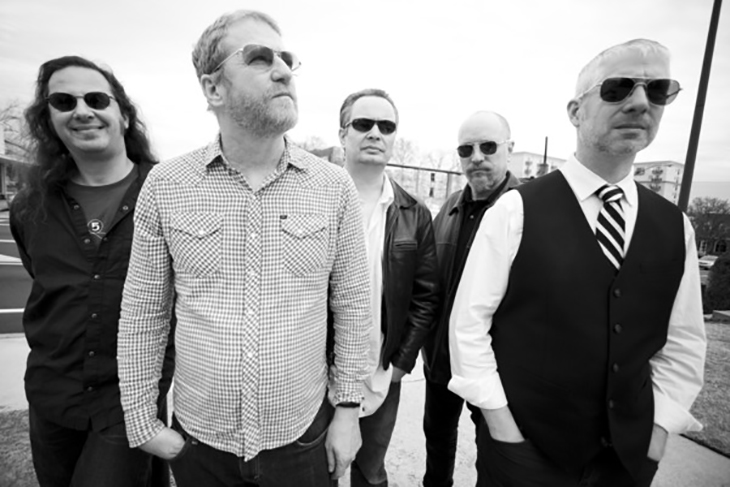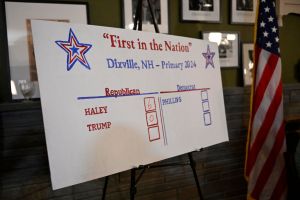In September 2017, Camper Van Beethoven and Cracker founder David Lowery sent me an email. Was I interested in turning Camper’s album New Roman Times, into a novel? The album’s central theme was what David saw as an ever-deepening divide in this country, fomented by the media. It was recorded in 2003, partly as a reaction to the Iraq war, but it largely predicted what happened between then and now.
The album is set in an alternate version of America during a period of conflict. Instead of a country with 50 states, it’s a continent made up of several countries. The biggest are the left-leaning Republic of California and the right-leaning Christian Republic of Texas. As I began the novel, we were nine months after Trump’s election, and a year into Brexit. Calexit and Texit were sounding like very real possibilities.
I built upon the binary theme by using the ‘two movies one screen’ technique and disrupting chapters with media interruptions that obscured the truth. I didn’t think scenes I’d written, like a riotous group of revolutionaries breaching a federal building would one day play out before my eyes in Portland. I’m sure there was no way Lowery and company could have predicted 2020 either. And yet lyrics like ‘when they come to take you away, are ya gonna go with them on that day’ from the song ‘Civil Disobedience’ make it hard not to picture Mark and Patricia McCloskey or a courthouse on fire.
There is an ever-growing feeling that the United States is so culturally and politically at odds with itself that a second Civil War is all but inevitable. Seeing footage of West Coast autonomous zones and protests-turned-riots in cities as surprising as Fort Wayne, or scrolling through the noxious hatefest of social media leads many to believe we’re on the eve of destruction for real. The pandemic has only heightened our distrust in the government and each other. Never mind the 244-year history, the pundits say. America is one concrete-filled bottle away from ripping at the seams and we have the visuals and chanting soundtrack as proof.
[special_offer]
Pontification after the fact is easy. Where were these people before November, 2016? Aside from a few primal-screaming pussy hats whose Hillary hopes were dashed against an orange-haired rock on election night, I don’t recall reading literature that seemed so prescient it was as if the author wasn’t creating a work of fiction so much as prophesying the very near future. No ominous stories made out of whole cloth where men assault other men for wearing red hats, or anti-lockdown protests are staged with guns in State Capitol buildings.
I can posit several theories as to why this might be. Art seems more prone to reaction than reflection. The microwave mentality of a short attention span means anything longer than a tweet, a 15-second pre-roll ad, or clickbait headline gets thrown into the ‘too long, didn’t read’ abyss. We’re busy decolonizing our bookshelves and tearing down the past before all of us have learned from it and built upon it. Maybe a heretofore undiagnosed symptom of COVID-19 is a splenetic malaise, the kind that would have made Baudelaire tell us to Baissez d’un cran. Perhaps it’s a combination of all the above. But like COVID, it needs a remedy as well.
As we charge toward November, there’s no doubt we’ll see more destruction, not less. I hope that more authors will take to pen or keyboard. Not to proclaim what’s inevitable, but to use what’s happening now as inspiration to explore the uncertainties, no matter how bleak. We need more accidental soothsayers.


















